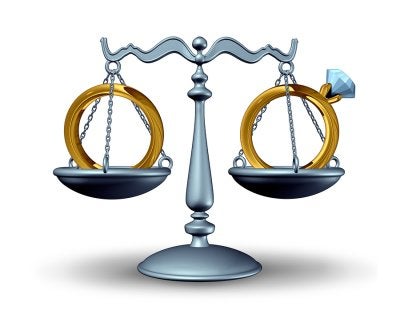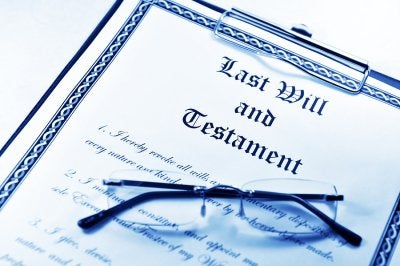-
The Child Custody Process in Texas
Child custody can be a particularly sensitive topic for a divorcing couple. Because emotions can easily enter into such situations, a parent going through a divorce and custody proceedings may want to contact a law firm near The Woodlands for its experience expertise. A family lawyer can advocate on behalf of a parent to ensure a custody decision that takes into consideration the welfare of the child.

Mediation
In general, individuals divorcing in the state of Texas may be required to participate in child custody mediation. Courts urge couples to decide for themselves the custody arrangements for their children without the need for litigation. A family law attorney can help parents discuss their custody desires amicably and prepare the necessary paperwork to see through these arrangements. A family law expert can also inform couples of their custody options and what regulations come with each custodial choice. Should a couple not come to mutually agreeable terms about child custody, court determination may be the next step in the custody process.Court Determination
If the court becomes responsible for deciding child custody issues, a judge may consider any number of factors before making a determination. Because the child’s welfare is the primary concern, a judge may look over the financial circumstances of each parent to ensure that the child’s basic needs can be looked after in a given home. He might also evaluate the well-being of each parent to see if one adult or the other is physically or emotionally better equipped to have child custody. The wishes of the child may also play a role in a court determination of child custody. Older children may be asked if they have a preference of parent with whom they would like to reside. Other considerations such as the locale of each parent can also help in determining who should receive custody. A family law attorney can help a parent provide the necessary information to allow him or her to best demonstrate parental strengths so that an outcome can be reached which reflects his or her custodial wishes. Once a decision is made by the judge, all parties are legally obligated to abide by it. -
When to Start Estate Planning
The need for estate planning does not depend on the size of your estate. If you have any possessions, monetary or otherwise, that you would like to bequeath to friends, family members, or charitable organizations, you may want to speak with a will attorney in The Woodlands.
Some people may not think of estate planning until they have reached significant life milestones such as getting married, having a child, or buying a home. However, these events typically happen after an individual has already amassed significant assets. As soon as you accumulate possessions of financial or sentimental worth, consult a law firm that specializes in wills and trusts. A will lawyer can explain the differences between these documents and help you decide which one is right for your needs. When you go through a law firm for your estate planning needs, you can also better guarantee that your wishes for the division of your assets will be carried out as you wish.

-
How to Choose a Divorce Attorney
The end of a marriage can affect every part of your life. Aside from the emotional consequences of divorce, you must consider the financial ones as well. As a result, finding the right family law attorney serving The Woodlands is key for your future security and well-being. Because divorce is not an event that many people experience often in their lives, few have significant knowledge about how to choose a divorce attorney. If you are in need of a lawyer, keep these guidelines in mind during the selection process:

Evaluate Your Options
An impeding divorce can be a worrisome situation even under the best of circumstances. You may feel pressed to choose the first attorney that a friend recommends or a commercial suggests, but it is important to exercise patience until you feel wholly comfortable with a particular attorney or law office . With this in mind, you can use resources such as loved ones and media outlets to create a list of potential candidates with whom you would like to discuss your case.Set Up a Consultation
Family law experts often allow for complimentary meetings with prospective clients so that they can learn more about the case. This first appointment may be all the time you have before deciding if you want to use a particular divorce lawyer, so come to each consultation prepared with questions. You should also observe how each attorney interacts with you. Indeed, this lawyer may be a person with whom you must work with for several months or longer. Having a comfortable professional relationship is often critical for an optimal legal outcome.Give the Lawyer the Necessary Facts to Assess the Case
As you consult with each divorce lawyer, you may want to bring up specific circumstances that may impact the details of your divorce. For instance, did you sign a prenuptial agreement with your spouse? You should also tell each attorney if you have children, as the status of your current child custody and child support arrangements could affect the outcome of your divorce. Knowing that your lawyer has a background helping clients with such aspects of their divorces can better ensure that you too can experience a favorable result. In any event, when consulting with an attorney, do not withhold negative information about yourself. Rest assured, if you keep your attorney ignorant of your dirty laundry, your spouse will not keep the opposing attorney similarly in the dark. Your attorney needs to prepare a response to negative information about you – and that’s best done weeks or months in advance of a trial, versus standing in front of the judge. Disclose everything as soon as possible. -
Creating a Will or Trust
Wills and trusts in the Woodlands dictate what happens to a person’s assets and estate after death. While most people refer to an attorney who helps in these situations as a will attorney or a probate lawyer, they are actually called estate-planning attorneys. When someone decides to create a will or a trust, consulting with a lawyer can ensure that he or she achieves certain estate-planning goals.
In this video, an attorney details the many benefits of working with a lawyer during the estate-planning process. As he explains, a lawyer understands the best avenues for allocating assets following death. For example, a lawyer can help explain when a trust or will is the most effective means to allocate assets to family members. Working with an attorney also ensures accurate preparation of documents, so as to ensure smooth probate and estate execution.
-
Answers to Your Questions About Getting Divorced in Texas
Every state has its own laws and regulations governing the divorce process, so someone petitioning for divorce should discuss his or her case with a local divorce lawyer. In Texas, a couple can only petition for divorce if at least one of the spouses has been a resident of the state for a continuous six-month time period. A family law attorney in the Woodlands will also advise the couple that one of the spouses must have been a resident of the county it wishes to file for at least 90 days.

What is the divorce procedure?
Usually, a Texas divorce case begins with one spouse filing an Original Petition for Divorce with the court and then personally serving the papers upon the other spouse. However, the other spouse may also sign a waiver to give up the right to be personally served with the papers. Thereafter, they begin the discovery process. Spouses may also discuss the settlement of their case directly or with the help of an attorney. If the parties cannot agree on all the issues of their divorce case, then the court will likely set a trial date.How long does it take to finalize?
In Texas, it takes a minimum 60 days after the petition is filed for the divorce to become final. As a part of this process, the judge will pronounce the divorce final in open court and sign the divorce decree. If the spouses do not agree, it will likely take around six months to a year to finalize, depending on the complexities of the case.How is property divided?
A Texas family law firm understands that courts initially presume that all property earned or acquired by either spouse during the marriage becomes community property. Separate property consists of property, brought into the marriage, and may also refer to any property acquired by just one spouse as a gift or through inheritance. Even though courts usually split property equally, factors such as unequal earning power and fault in the marital relationship can influence how a court divides the property. -
The Probate Process at a Glance

A probate court in the Woodlands handles the legal process that occurs once someone dies, including appraising the deceased person’s property and distributing property according to the will. Probate usually involves court appearances by a probate lawyer, who receives compensation from estate property. The process begins when the person named as executor to the will, or a person appointed by a judge, files paperwork with the local probate court.
During this time, the executor to the will must find, secure, and manage assets throughout the probate process, which can take several months to a year. Depending on the amount of the deceased’s debts, the executor may talk to a probate attorney about selling the real estate, securities, or property. In most states, family members can ask the court to release short-term funds during the proceedings to pay for necessary expenses. The court can then grant the executor permission to pay the debts and taxes before dividing the remainder according to the will. The last step of the probate process is transferring the property ownership to the new property owners.
-
The Importance of Preparing Your Will [INFOGRAPHIC]
Did you know that at least half of Americans with children do not have a will? While thinking about passing away can be difficult, it’s important to take steps to make sure your family and loved ones are taken care of once you are gone. That’s why working with an experienced lawyer in estate planning in The Woodlands is so important. When a person dies testate, this means that he or she has a valid will. If a person dies intestate, there is no valid will, so property and assets are divided up according to state guidelines. Without a valid last will and testament, your property could end up being divided contrary to your wishes. Take a look at this infographic to understand the differences between being testate and intestate. Please share with your friends and family.

-
The Basics of Writing a Will
According to an AARP survey , two out of every five Americans over the age of 45 haven’t written a will. While many Americans may avoid this process because it entails actively planning for their demise, creating a will is one of the most important ways to plan for loved ones. Working with a probate and will attorney in the Woodlands allows someone to put his or her wishes on paper and help his or her heirs avoid unnecessary legal hassles.

What is a will?
A will is a legal document in which someone declares how and who will manage his or her estate after death. This estate can consist of big, expensive items like a vacation home as well as smaller items that hold sentimental value, like family photos. The person appointed to manage the estate is called the executor, as he or she is tasked with executing the testator’s wishes. However, there are certain types of property, like retirement accounts, that aren’t covered by wills. In such cases, the testator should discuss how to transfer ownership in this property with a will attorney. Creating a will also overlaps with other family law areas, as the testator can declare who will become guardian to his or her dependents in the will.Is an attorney necessary?
Contacting a law firm is not required to create a will. However, an experienced will lawyer provides useful advice on estate-planning strategies, such as how to create a living trust within a will. Whether someone decides to create his or her own will, or seeks the advice of a lawyer, he or she needs to consider all essential estate-planning documents. Indeed, this is a great time to research financial and health care powers of attorney.Should you create a joint will?
Will lawyers and estate planners tend to advise against joint wills. In fact, some states don’t even recognize them as legally valid. The problem in joint wills is that it is rare for both spouses to die at the same time. Additionally, many couples have property that is not jointly owned. Even though a couple’s separate wills may look similar, it’s recommended to just create separate legal documents. -
Grounds for Divorce
A number of states provide for fault-based divorce grounds. This means that a spouse and his or her divorce lawyer in The Woodlands can claim the other spouse was at fault for the end of the marriage. Common grounds for fault divorce claims include adultery, cruelty, and abandonment.
In this video, a family law attorney explains the difference between filing a fault and no fault divorce petition. As he explains, someone only needs to allege the irretrievable breakdown of marriage or irreconcilable differences in a no-fault divorce claim. No-fault divorce empowers a couple to end their marriage if they desire without citing a legal reason. No-fault divorce represents a modern trend in family law. Even if the petitioned spouse doesn’t wish to divorce, he or she cannot object to the divorce proceedings. In traditional fault divorce cases, the petitioned spouse could object to the grounds for divorce.
-
Why You Should Have a Will
There is a common misconception that if you die without a will, your personal belongings will pass to your next of kin automatically. In reality, with or without a will, the probate courts will determine how to distribute your assets, which may or may not be consistent with your true wishes. Avoiding probate in The Woodlands requires you to meet with a will attorney and specify how your possessions should be divided.
Ensure belongings go to beneficiaries
Wills ensure that certain belongings go to desired beneficiaries. Every probate court will review the will for validity and actually having a will, rather than an intestate estate, will speed up the probate process. In meeting with a will attorney, you can also outline how you would like certain assets to be used following your death. For example, you can bequeath a car to a family member and express your wishes that he sell it to support his education. Even though this stipulation isn’t binding, the will allows you to convey your final wishes in giving assets to your beneficiaries.
Limit family disputes
Courts only allow contesting a will in very limited circumstances. Usually, this occurs when there is evidence the will is not legitimate because the person making the will was not of sound mind. By drafting a will, you can help ease tension among family members in dividing your assets. Your will attorney can help you use specific language to ensure there is no doubt or confusion as to how you would like your assets divided following death.Quantify your assets
If you haven’t drafted a will, a probate attorney may send inquiries to local banks and financial institutions to assess your financial situation. Your family members may also have to produce financial paperwork, including brokerage statements, government bonds and stock certificates. The purpose of this requirement is to ensure all of your assets exist and can be divided equitably. Creating a will helps avoid this step because you have formally outlined your assets and provided details of their value. You can also include a contingency clause assigning a beneficiary to any assets that you don’t specifically include in your will.
RECENT POSTS
categories
- Uncategorized
- Estate Planning
- Probate
- Family Law
- Drafting a Will
- Divorce Lawyer
- Texas Family Law
- Divorce
- Real Estate
- Probate Court
- Child Custody
- Andrew J. Bolton
- Esq.
- Adoption
- Law Office of Andrew J. Bolton
- Wills
- Executor
- Infographic
- Guardianship
- Trusts
- Contested Divorce
- Child Support
- Attorney
- Living Wills
- Contested Will
- Prenuptial
- Probate Bond
- Heir Apparent
- Legacy Contact
- Living Trusts
- legal guardian
- Legal Disputes
- property rules
- Common Law
- Stocks
- Estate Tax
